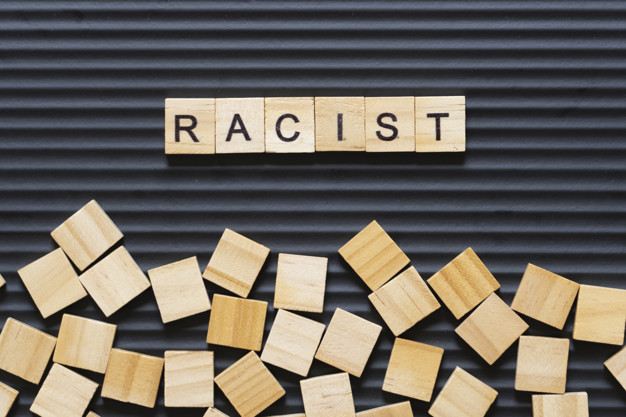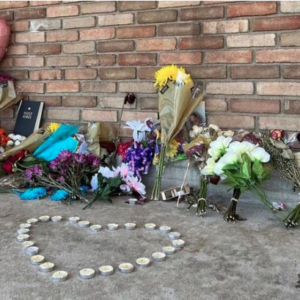Labeling people as racists is becoming more and more common. This designation looms heavily over the heads of politicians, employers, teachers, and every other variety of White folks. As a result, we are often tiptoeing around necessary conversations, instead of confronting them head on, for fear of being branded with this seemingly irrevocable Scarlet Letter. We need to restore the word racist to a character trait, rather than using it as a label. This not only makes racism something that we can individually work on within ourselves, but also gives us the ability to start having productive conversations about racism in America.
The Scarlet Letter We Fear Most
When we use the term “a racist” as a label, it furthers an unnecessary binary in actually addressing the problem of racism; someone either is, or is not a racist. This allows insidious forms of systemic racism, as well as micro and macro aggressions, to continue unabated. Because our allegedly subtle actions pale in comparison to those of the “real racists” out there, it allows many of us to distance ourselves from our part in the problem. Consequently, we end up developing blinders not only to our own racism, but also to the racism of those close to us.
For most White people, the thought of being labeled as “a racist” is analogous to the dreaded Scarlet Letter. Once the allegation is thrown upon us – it is painful to bear, alienates us, and is impossible to remove. Consequently, many of us are more afraid of being called a racist, than we are of actually being racist.
The “Real” Racists
Conversely, there are countless White people who are proudly and openly racist. Surely we can call them racists, right? Incorrect. This further reinforces the binary. If we decide that some people are “real racists” (noun), while others are just racist (adjective), where do we draw the line? At what point does one cross over the threshold of committing racist acts, or having racist thoughts and beliefs, to being a full-blown racist?
The metric of what it takes to be a bona-fide racist is not only lopsided and unrealistic – but it perpetuates a misunderstanding of what it actually means to be racist through our thoughts, beliefs, and actions. Paradoxically, by not labeling anyone a racist, it actually holds more White people accountable for our racism, including those of us who genuinely, yet mistakenly, believe that we don’t have a racist bone in our body.
Letting Go of The Label
In order for us to stop denying and actually start addressing our own racism, we can’t continue drowning in the fear of being branded with an irrevocable label. Letting go of the fear of being labeled as a racist not only takes away the power of our shame, but also allows us to actually discuss these unwanted thoughts and beliefs with others. This gives us a chance to discover empathy among other White folks, as well as to be more receptive to constructive feedback from other communities. Restoring the word racist to its realm as an adjective will help White people begin to have these difficult conversations with ourselves and with others.
One could try and argue that this is simply a form of coddling sensitive White people and giving in to “White fragility.” I would challenge that assumption. Labels shut down conversations, rather than making room for dialogue. More importantly, as individuals, we are more willing to tackle our character defects, rather than trying to change who, or what, we are.
As long as we keep calling White people racists, we will continue to inhibit and avoid the necessary conversations about race and racism that need to be happening in this country. So please stop calling me a racist… Feel free, however, to call me out on my racism.
Please Subscribe
david
Related Posts
- 1 month ago
- 8 months ago
- 8 months ago
- 9 months ago




